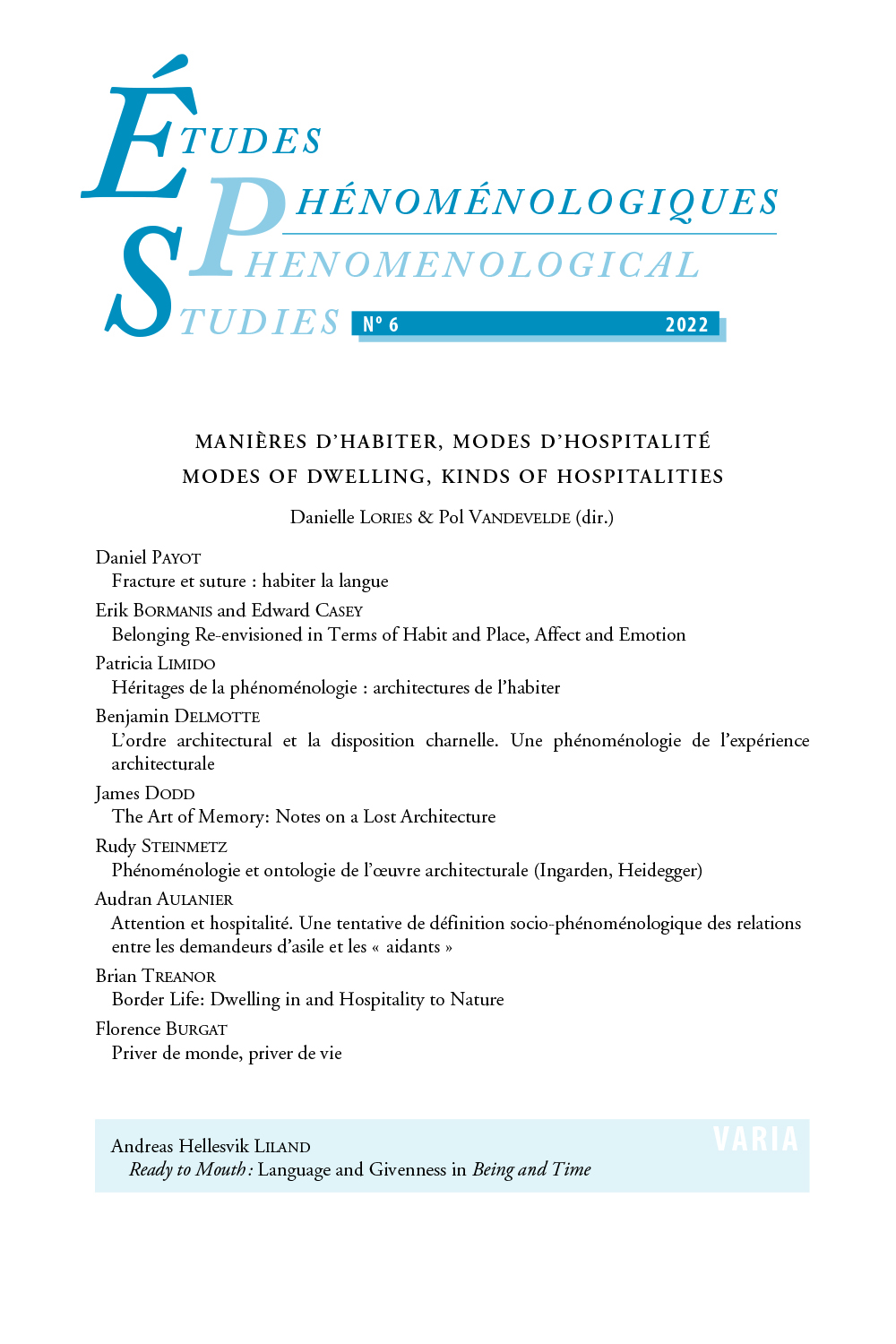 previous article in this issue previous article in this issue | next article in this issue  |

Preview first page |
Document Details : Title: The Directness of Empathy Author(s): WILLIAMS, Heath Journal: Etudes phénoménologiques - Phenomenological Studies Volume: 1 Date: 2017 Pages: 193-216 DOI: 10.2143/EPH.1.0.3188848 Abstract : A recent development in intersubjectivity studies is the phenomenologically inspired direct perception model of empathy. This paper will contribute to contemporary debates on intersubjectivity by clarifying exactly why Husserl sometimes described empathy in terms which suggest it is direct, and whether we ought to adopt the terminology of directness. I argue that, for Husserl, terming empathy 'direct' does not mean that experience of the other’s mind in empathy is akin to my experience of my own mind, but this does not justify terming empathy 'indirect'. For Husserl, 'direct' is a term which denotes simple, intuitive and temporally immediate acts, and empathy fits this description. Also, Husserl requires a distinction between direct and indirect forms of intersubjectivity, and empathy must be classed as the former. Lastly, despite its direct nature, empathy still requires a degree of mediation or else it could not be an act of intersubjectivity at all, and the mediating factor that must be present is the body of the other. Thus, in this paper I will justify the description of empathy as a direct form of experience, while simultaneously clarifying the presence-in-absence structure of empathy. |
 |


